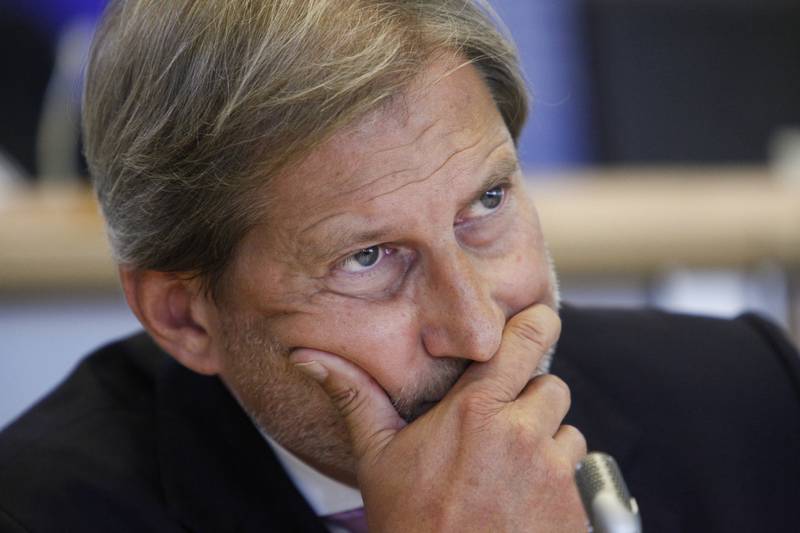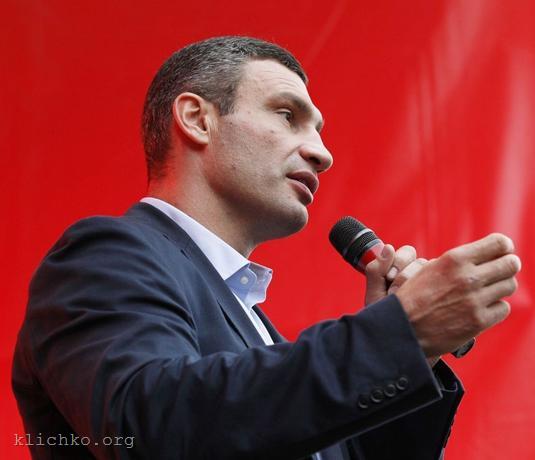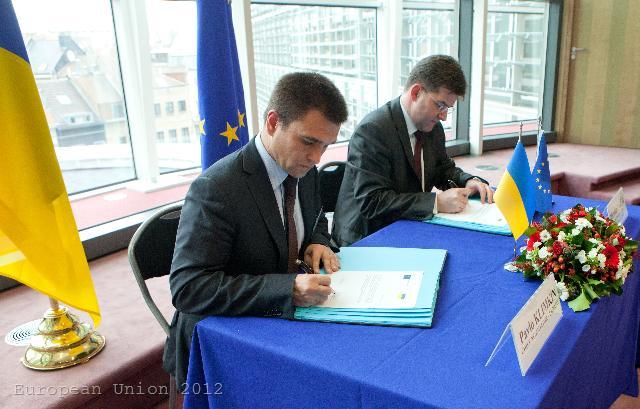The Ukrainian Dilemma: with Kremlin or with Brussels?
Irena Mihaylova, September 21, 2011
 Ukraine today looks rather different from Ukraine of the Orange Revolution, which took a steady course towards the European Union seven years ago. The impetus of the Ukrainian society for democracy, fair and transparent governance, that received Europe’s support in 2004, has failed to accomplish genuine reforms according to public opinion in the country, as well as criticism from the EU. Until recently an example of deepening integration with the West, Ukraine, after the electoral victory of pro-Russian President Viktor Yanukovych in January 2010, seems at crossroads again.
Ukraine today looks rather different from Ukraine of the Orange Revolution, which took a steady course towards the European Union seven years ago. The impetus of the Ukrainian society for democracy, fair and transparent governance, that received Europe’s support in 2004, has failed to accomplish genuine reforms according to public opinion in the country, as well as criticism from the EU. Until recently an example of deepening integration with the West, Ukraine, after the electoral victory of pro-Russian President Viktor Yanukovych in January 2010, seems at crossroads again.
What is the language of Ukrainian politics today -
that of Russia or that of the EU, is the question that the country still lacks an answer for. The bets in all cases are large and the facts - uncertain. On the 29th of September we will be expecting the long-awaited summit of European leaders with EU’s Eastern partners, where Ukraine is deemed being of primary importance as the country is in the last phase of negotiations for an Association Agreement and a deep and comprehensive free trade area (DCFTA) with the EU. The latest data shows that the European Union is Ukraine's largest trading partner.
On the other hand, Russia continues to assert its economic and political positions as the biggest energy supplier for the country. The fact that nearly 80% of Russian gas to Europe passes through pipelines on Ukrainian territory makes the EU-Russia-Ukraine relationship strongly entrenched from an economic perspective, and respectively, three times more complex from a political. The challenge to all three countries to establish economic and political balance is for Andreas Umland, DAAD lecturer in political science at the National University of Kiev – Mohyla Academy, a need to reach "agreement on long-term foreign policy goals and strategies."
Mr Umland states in an interview for Valdaiclub.com on the 2nd September that "as of late August 2011, these relations are in a holding pattern, as there are several options for Ukraine on the table, and no final decision has been made which one to choose – association with the EU, involvement in the Russia-led Customs Union [Russia, Belarus and Kazakhstan], or continued domestic stagnation and international isolation". According to him "neither the European nor the Russian leaders, not even the Ukrainian leadership seem to be clear about the path Ukraine will take in its foreign relations in the near future”.
Nevertheless, Ukraine’s dilemma is easy to see in the latest news from the Ukrainian political and economic life. After Yanukovych ran again and had won the January 2010 presidential elections, despite being discredited as a political figure by the revolution, the country’s foreign policy has made a remarkable upturn in its relationship with Russia, which was given a gift - an extended stay of its military  base on the Crimean Peninsula until the year of 2042. At the same time the Ukrainian President was quick to reassure the EU that the European integration remains essential. However, the NATO membership goal, enshrined in the ideological platform of former Prime Minister Yulia Tymoshenko for Ukraine's participation in the common Western security system, is firmly rejected by Yanukovych.
base on the Crimean Peninsula until the year of 2042. At the same time the Ukrainian President was quick to reassure the EU that the European integration remains essential. However, the NATO membership goal, enshrined in the ideological platform of former Prime Minister Yulia Tymoshenko for Ukraine's participation in the common Western security system, is firmly rejected by Yanukovych.
On the one side, the deal with Russia has provided Ukraine with a 30% reduction of gas prices. And on the other, the EU is pressing the Ukrainian government to implement reforms to improve the energy efficiency of the country by using renewable energy and adopting structural changes in the industrial sector, which would make it more independent from Kremlin. The latter is, no doubt, strongly disadvantageous to Russia which is logically working to develop its strategic businesses in the "near abroad" by merging Russian with key Ukrainian companies - in the field of aviation, energy, transport and raw materials – as a way of gaining real access to Ukrainian politics.
 Nevertheless, the shady deals of oligarchs, corruption and an ineffective judicial system are incompatible with Europe’s rules as a condition for obtaining a visa free regime and a trade agreement with the EU. Despite Poland’s efforts, ambitiously sought by the Polish presidency of the EU, to propose faster integration with the Eastern Partners, and most notably with Ukraine, and accelerate the process of visa liberalisation and free trade, the 27 member states of the Union are not unanimous on the issue.
Nevertheless, the shady deals of oligarchs, corruption and an ineffective judicial system are incompatible with Europe’s rules as a condition for obtaining a visa free regime and a trade agreement with the EU. Despite Poland’s efforts, ambitiously sought by the Polish presidency of the EU, to propose faster integration with the Eastern Partners, and most notably with Ukraine, and accelerate the process of visa liberalisation and free trade, the 27 member states of the Union are not unanimous on the issue.
At the informal [Gymnich] meeting of EU’s foreign ministers in Sopot on 2-3 September EU High Representative Cathy Ashton expressed a strong concern regarding the political situation in Ukraine. Currently, Yulia Tymoshenko, the pro-European charismatic leader of the opposition, who became famous in the 2004 Orange Revolution and is today the primary rival of President Yanukovych, is being held under arrest. According to the EU, Tymoshenko’s charge for signing an illegal gas deal with Russia in 2009 is unlawful and the trial aims to damage the political reputation of the Ukrainian opposition. French Foreign Minister Alain Juppé was determined at the meeting that in order to finalise the agreement on free trade with the EU, Ukraine must ensure a fair and transparent trial, which includes Tymoshenko’s release from custody. The Polish Foreign Minister insisted that, despite all, the political case should not delay the signing of the agreement.
At the end of September, at the EU’s Eastern Partnership summit, there are more details to come out on the development of Ukraine's dilemma, which could soon become a dilemma of the European leaders whether to give a quicker blessing for the association of Ukraine in the free trade area with the EU in December 2011 or to further delay ratifying the treaty.
 Johannes Hahn | © European Parliament
Johannes Hahn | © European Parliament | © klichko.org
| © klichko.org | © European Union 2012
| © European Union 2012